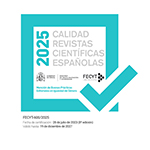The Translation "Habitus" of Contemporary Basque Writers
Resum
Basque writers have many ways of approaching translation: some Basque writers are selftranslators, while others prefer professional translators to translate their work; some Basque writers work as professional translators, while others translate as a training activity; some of them even integrate translations and translator characters into their works of fiction. The aim of this paper is to describe what translation habits Basque writers have, and what their attitude is towards Basque translations. For that purpose, fifteen questionnaires have been analysed and the translation habitus described. Basque writers feel that translation is a very proximate reality and approach translation as authors, not as translators (it is not always the case). They do not consider themselves as being part of the professional translation field, but they perceive the evolution of Basque literary translation to be positive. The institutionalisation process happening in the field has had its effect on their approach to translation and their discourse on it. The evolution of fictional translators is a clear example of it.Descàrregues
##submission.format##
Llicència
La revista Estudios de Traducción, para fomentar el intercambio global del conocimiento, facilita el acceso sin restricciones a sus contenidos desde el momento de su publicación en la presente edición electrónica, y por eso es una revista de acceso abierto. Los originales publicados en esta revista son propiedad de la Universidad Complutense de Madrid y es obligatorio citar su procedencia en cualquier reproducción total o parcial. Todos los contenidos se distribuyen bajo una licencia de uso y distribución Creative Commons Reconocimiento 4.0 (CC BY 4.0). Esta circunstancia ha de hacerse constar expresamente de esta forma cuando sea necesario. Puede consultar la versión informativa y el texto legal de la licencia.









